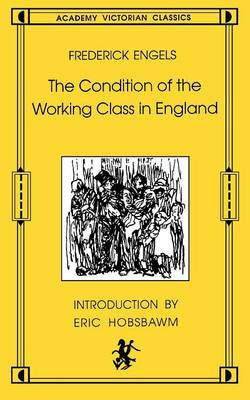

In cities like Manchester and Liverpool mortality from smallpox, measles, scarlet fever and whooping cough was four times as high as in the surrounding countryside, and mortality from convulsions was ten times as high as in the countryside. He shows, for example, that in large industrial cities mortality from disease, as well as death-rates for workers were higher than in the countryside.


Engels argues that the Industrial Revolution made workers worse off. Manchester was then at the very heart of the Industrial Revolution, and Engels compiled his study from his own observations and detailed contemporary reports. It was also Engels' first book, written during his stay in Manchester from 1842 to 1844. Originally written in German and published in English in 1892 this is a classic a study of the working class in Victorian England. Exact facsimile of the original edition, not reproduced with Optical Recognition Software. Touching upon several disciplines, including the history of socialism, urban sociology, Marxist thought, and the history and theory of the Industrial Revolution, Engels, Manchester, and the Working Class offers a fascinating study of nineteenth-century English literature and cultural life.2012 Reprint of 1950 Edition. He also examines Engels himself, son of a wealthy German textile manufacturer, who was sent to Manchester to complete his business education in the English cotton mills.

Marcus studies the city of Manchester, centre of the first Industrial Revolution, between 18 when the city and its inhabitants were experiencing the first great crisis of the newly emerging industrial capitalism. In this book, Steven Marcus, author of the highly acclaimed The Other Victorians, applies himself to the study of Engels' book and the conditions that combined to produce it. The first book of its kind to study the phenomenon of urbanism and the problems of the modern city, Engels' text contains many of the ideas he was later to develop in collaboration with Karl Marx. Friedrich Engels' first major work, The Condition of the Working Class in England in 1844, has long been considered a social, political, and economic classic.


 0 kommentar(er)
0 kommentar(er)
